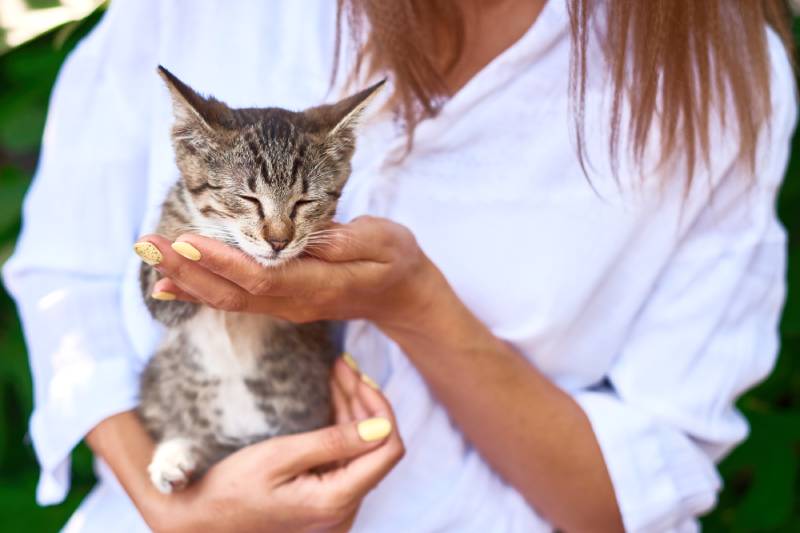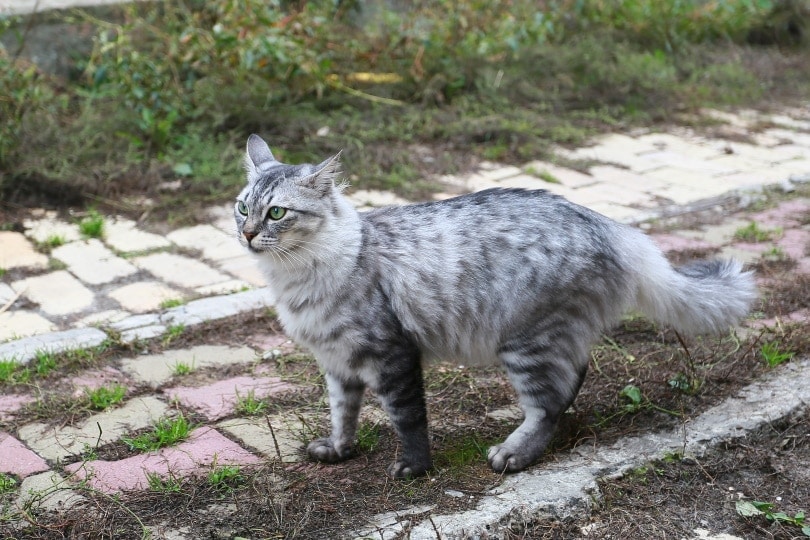Why Isn’t My Cat Interested in Playing: 8 Vet-Reviewed Reasons
Updated on
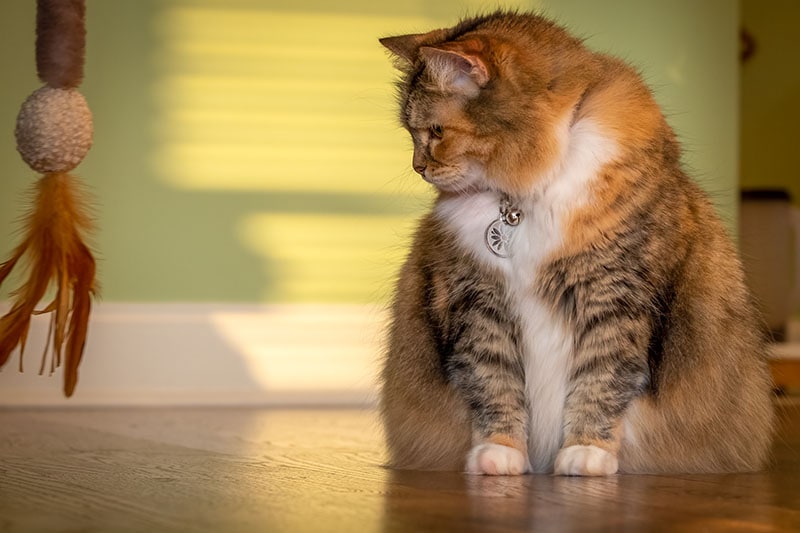
Cats are creatures that we are constantly trying to figure out. Some cats live for running through the house, climbing your curtains, and getting into everything they possibly can. Other cats, however, prefer to lounge around in their favorite spot, waiting on you to dote on them and living out their lives in luxuries. Whether you have the athletic kitty in your home or the lounger, playtime is a part of every cat’s routine. If you pull out their favorite toy and tease your kitty, even the most docile feline will spring into action in hopes of a little fun.
Unfortunately, at times, even the most energetic cats may seem uninterested in playing. When you notice this, instantly the worry sets in. There are several reasons your cat may be disinterested in playing. Understanding these situations can help you better care for your cat and even bond with them more. Let’s learn some of the likely reasons your cat isn’t playing so you can better understand the fickle creature in your life.
The 8 Likely Reasons Your Cat Isn’t Interested in Playing
1. Age Affects Your Cat’s Interests
Kittens are normally into everything and ready to explore the world around them. This curiosity often remains with them for several years. Older cats, however, have been there and done that.
As some cats mature, the amount of time they spend playing may decrease, or the time of games they engage with could vary. This is natural; however, if you feel your older cat is not interested in playing whatsoever, don’t just assume it is “old age” and ignore this behavior. Your older cat should be checked by your vet to make sure there is no underlying medical problem behind your cat’s lack of interest in playing.
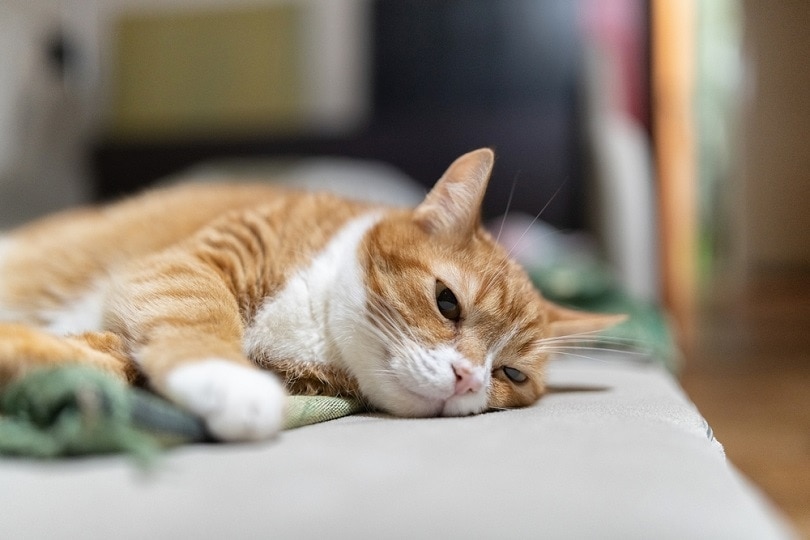
2. Health Issues
No pet owner likes to see their best friend feeling down. One way of noticing this in a normally active kitty is when they decide they don’t want to play. If your cat suddenly doesn’t like their favorite toy or isn’t trying to interact when you initiate play, it could be feeling under the weather. Keep an eye on them for a day or two. If their lack of interaction continues, you may need to take a trip to the vet for a wellness check.
3. Injuries
We can’t be with our cats every second of the day. For active kitties who like to run and jump, hurting themselves is a big possibility. When you come home from a day out to find your active kitty lying around, not wanting to engage with you, they could’ve hurt themselves while exploring the house. Like with health issues, injuries could require a visit to the vet. Always check on your cat when they are acting differently so you can be aware of what’s happening and get them proper care when needed.
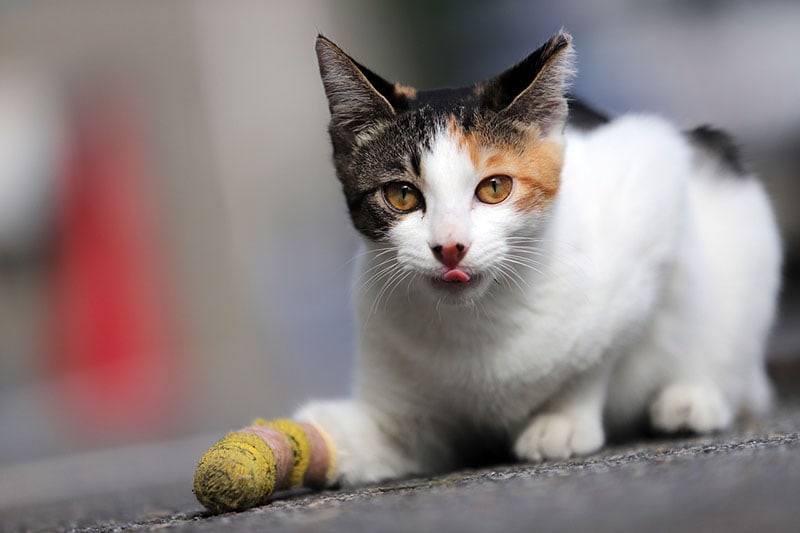
4. Breed
If you’ve owned several purebred cats throughout your lifetime, you know every breed is different. Not only do they have their look, but they also have their personalities. Some cat breeds are known for being lazier and chilled and they may not be into playing as much; for example, Persians, Ragdolls, and British Shorthairs belong to these calmer breeds. This doesn’t mean they don’t need activity and exercise, so always try to engage your kitty and get them to exercise to keep them healthy. For those who own more active breeds, play and exploring will become part of your cat’s routine. When you notice these cats aren’t playing, you should take notice.
5. Your Cat Is Bored
Just like us, cats need variety and innovation. Your kitty may have a favorite toy today that they could care less about tomorrow. If you want to keep your cat happy and playing, always have several options around the house for them. Multiple toys or outlets for their energy are a great way to keep your cat happy and free from the burden of boredom.
The best toys will give your cat hours and hours of exercise and entertainment. Our Hepper Catnip Stick Toys are packed with 100% organic catnip and shaped like prey to give your cat both mental and physical stimulation. Plus, they're as nice to look at as they are sturdy and fun!
6. Stress
Cats are susceptible to stress. Changes in their lives can strongly affect how much they play or interact with you. If your cat is new to your family, don’t expect them to play immediately. Cats need time to acclimate to their environments. The same can be said when you move, bring a new pet into the house, or even have a child. Understanding that your cat will react differently when they are stressed is necessary to be a great cat owner. They may not play as much when they are upset, but eventually, things will get back to normal.
7. Time of Day
Have you heard people say their cats only want to play at the break of dawn and late in the evening? You may have thought those people were exaggerating a bit, but that’s not necessarily the case. If you are trying to convince your kitty to play during the middle of the day and all they want to do is lay around, don’t be alarmed. This is normal. Just don’t be surprised when they exude high levels of energy when twilight sets in.
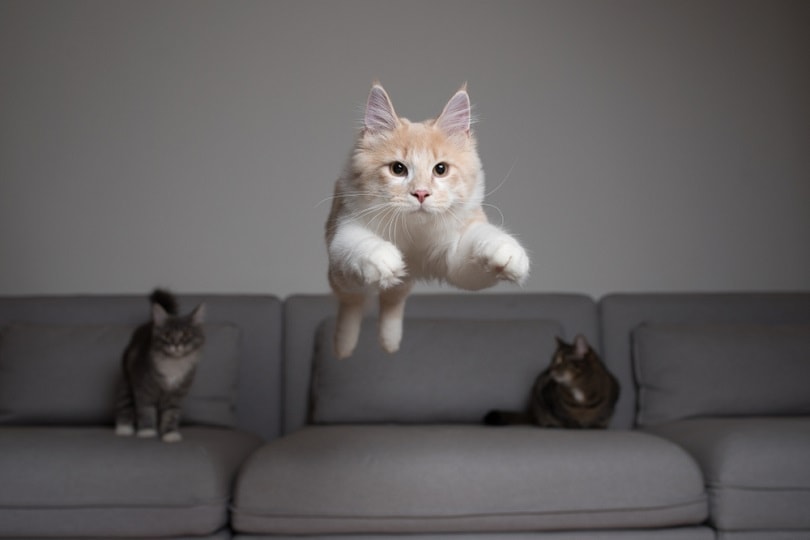
8. Weight
As is natural, when a cat’s calorie intake exceeds their energy needs, your cat may become overweight or even obese. To complicate things further, if your cat packs on a few extra pounds, you may notice their energy levels lowering, perpetuating this cycle. This isn’t good for your kitty. They need play and exercise. Try to keep your cat engaged and playing. If that doesn’t work, switch over to puzzle feeders. Anything you can do to get movement out of your cat can help with their weight issues. You may also need to speak with your veterinarian about how to help them lose the extra pounds and get back to their ideal weight.
Summary
Not every cat is the same. Some cats love to play, nonstop. Others are not big on rushing around the house and would prefer to lounge peacefully. Still, even the laziest of cats need a bit of exercise in their life. If you notice nothing you do is getting your cat to engage in play, there could be an underlying issue that should be addressed. If your cat’s lack of interest lasts for more than a few days, schedule a trip to the veterinarian. Whether there’s an issue or not, you’ll feel better knowing you put your kitty’s health and well-being first.
Featured Image Credit By: Samray, Shutterstock




